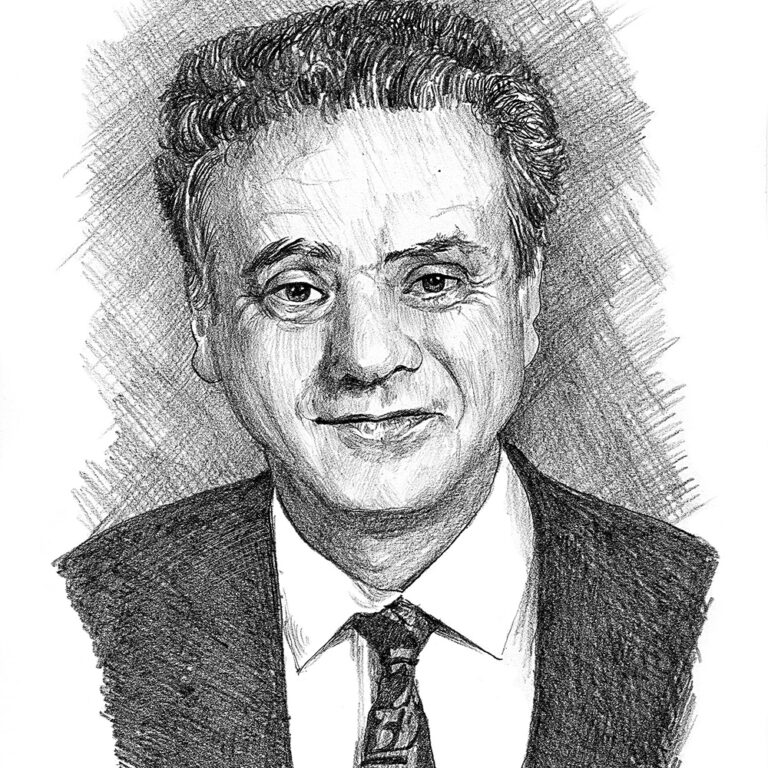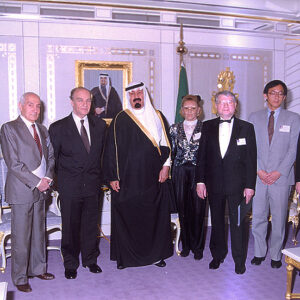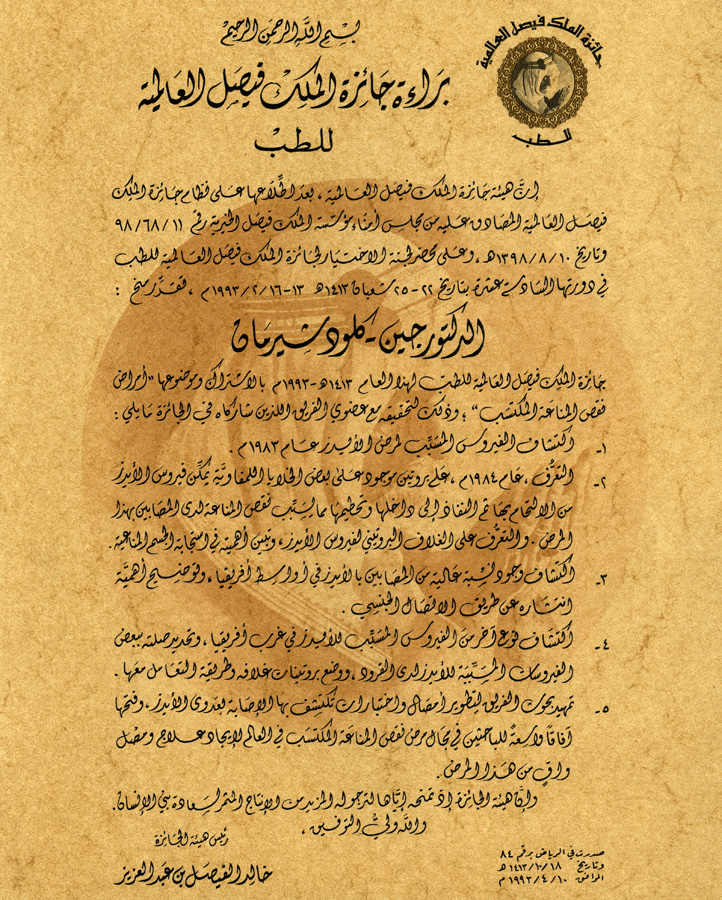

Professor Jean-Claude Chermann
King Faisal Prize in Medicine 1993 Laureate
Topic: "Acquired Immunodeficiency diseases"
Only an original method of research can bypass the diversity of strains and provide a vaccine

Jean-Claude Chermann obtained his doctoral degree from the College of Science at the University of Paris, followed by postdoctoral training in Switzerland, Sweden, and the United States. He taught for many years and was an Assistant Chief of Research at the Medical University in Western Paris. He spent 25 years at the Pasteur Institute, where he became Chief of the Departments of Viral Oncology and of Retroviruses. In 1988, he became the Research Director of the laboratory of Retroviruses and Associated Diseases of the Institut Nationale de la Santé et de la Recherche Médicale (INSERM) in Marseille. He is the Director of INSERM U322 on Retrovirus and Associated Diseases.
Professor Chermann carried out pioneering research on retroviruses and their mechanisms of transmission. He participated in landmark studies on acquired immunodeficiency syndrome (AIDS) in collaboration with Luc Montagnier and Françoise Barré-Senoussi. These three French scientists are noted for their groundbreaking success in isolating and characterizing the human retrovirus (HIV-1) responsible for AIDS in 1983. The following year, they described how that virus attached to certain white blood cells (CD4+ cells) normally involved in cellular immune responses to various pathogenic infections. Subsequently, they showed that HIV-1 progressively destroyed patients’ CD4+ cells, resulting in a weakened immunity against infections and malignancies. In 1986 the team described a second but less virulent retrovirus which was responsible for AIDS in West Africa. This retrovirus has come to be known as HIV 2. The discovery of HIV 1 and 2 has opened the way to the development of diagnostic methods for AIDS and its prodromal syndrome.
Professor Chermann authored and co-authored more than 200 scientific papers. His scientific and medical contributions were recognized by several other awards, including the title of the Chevalier of the French Order of Merit, as well as election to a number of prestigious scientific and medical societies.
This biography was written in the year the prize was awarded.
- He held many positions including:
- Chief Scientific Director of URRMA Biopharma based in Montreal, Canada.
- Director of URRMA Research and Development branch, based in Aubagne, France in June 2001.
- Member of the Scientific Boards of Ethlon Foundation in California.
- He was awarded the title of Chevalier of the Legion of Honor in 1996.



